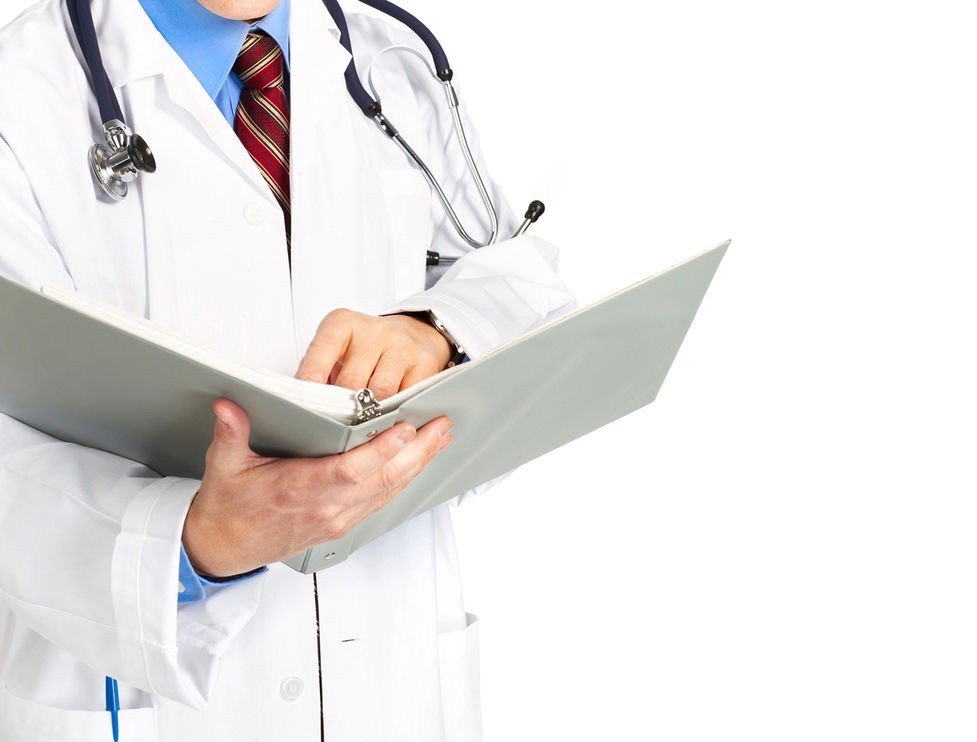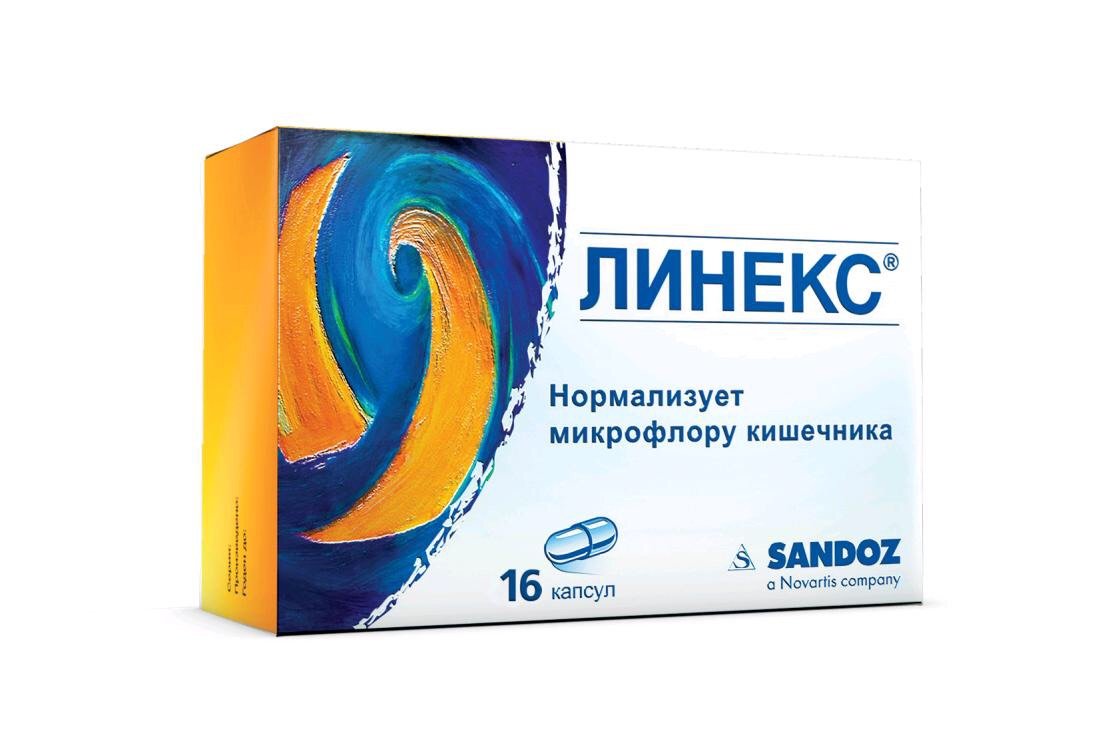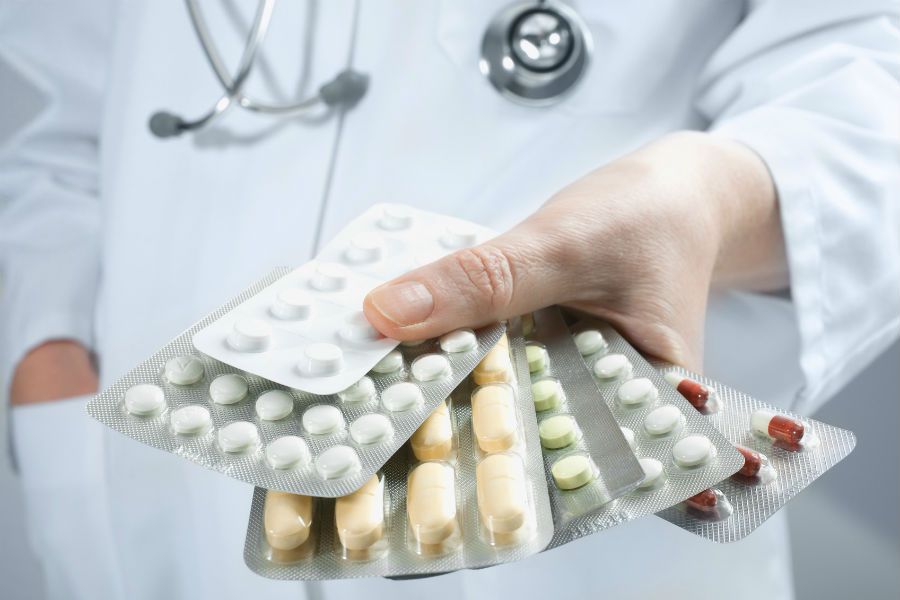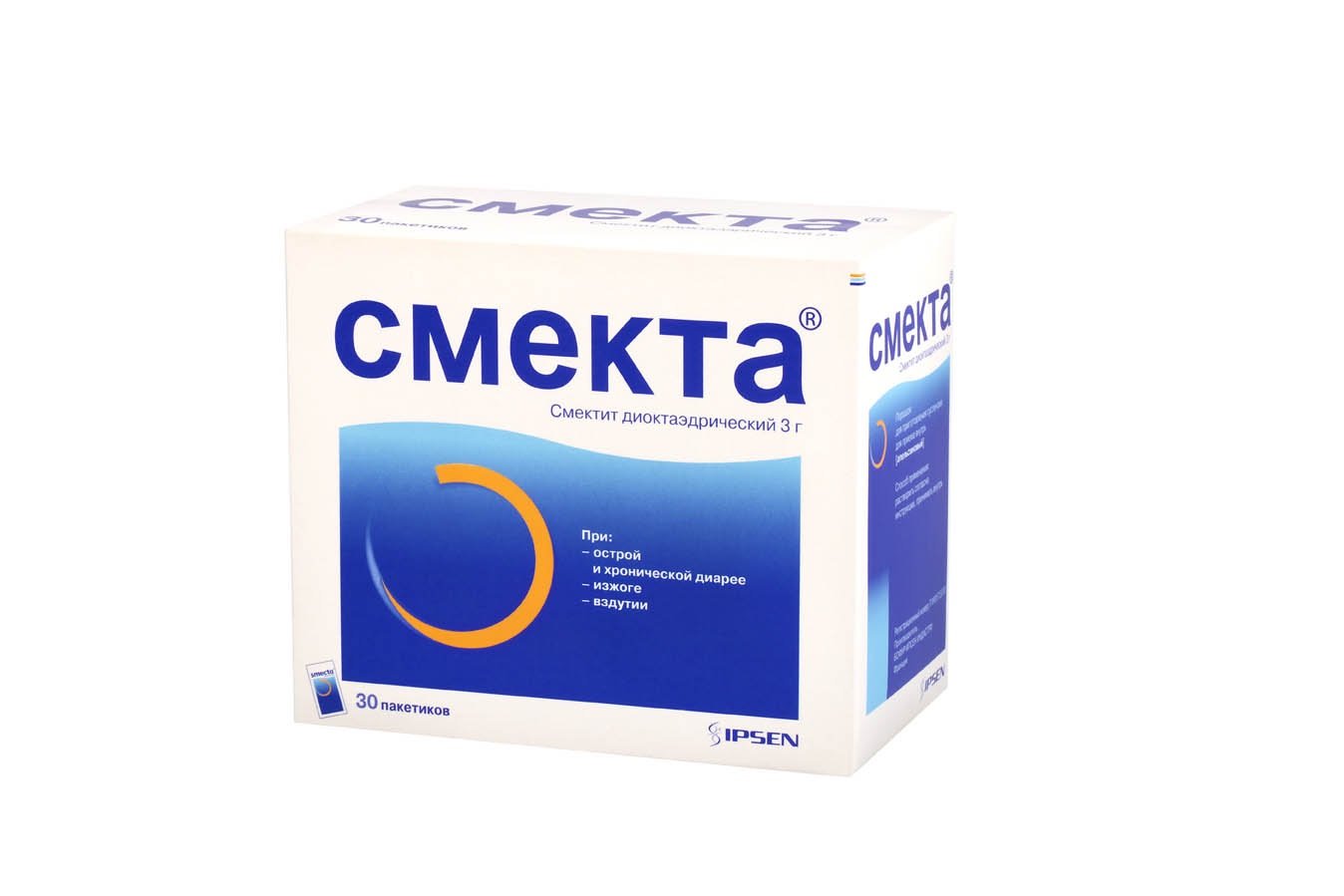Site sections
Editor's Choice:
- Technology and step-by-step instructions for nail gel: steps, rules, process
- White spots on the nails, reasons for what to do, white spots on the nails and folk signs
- Available methods for rapidly increasing blood leukocytes
- Nail and skin fungus will not resist the coffee grounds
- Crocus furniture exhibition. Furniture exhibitions
- Owl tattoo on arm value
- The biggest members in the world
- Fractures of the phalanges of the toes of the photo
- What is “bad” and “good” cholesterol
- What to do if the skin around the nails dries
Advertising
| Acute intestinal infection. Intestinal infection in a child - we treat correctly! |
|
Intestinal infection - a dangerous and unpleasant disease, almost every person has ever come across it. The groups of intestinal infections include a large number of diseases that have a detrimental effect on the gastrointestinal tract. The main causes of the disease are viruses and bacteria. Symptoms differ significantly depending on the severity of the disease. For example, a staphylococcal infection can be cured in a few days, and cholera is a serious and problematic disease. The fatal outcome is currently quite rare, since modern medicine able to cure intestinal diseases. No one is immune from an intestinal infection. In the summer hot season, intestinal infections carry a particular hazard. Heat always causes thirst, and sometimes water is not at hand, so people often drink dirty and unboiled water directly from the tap or even from sources of natural origin. Unwashed fruits, berries and vegetables are also eaten. In hot weather, dairy, meat, fish products deteriorate very quickly, and without visible deformation. Insects can also carry a contagious disease. For example, one small fly can carry on its body several million bacteria, among which there may be pathogens. One of the main factors is the excessive amount of water consumed, which dilutes the gastric juice, which reduces the protective properties and the ability to neutralize harmful microorganisms. What can help in the fight against this unpleasant disease? Bactericidal properties are also found in saliva. Back in school, in anatomy lessons, we are taught to chew food thoroughly, because it not only improves the digestion process, but also provides disinfection of harmful microbes. Good protection against intestinal infection is the mucous membrane digestive tractin which special microorganisms engaged in saving the intestines from the effects of viruses and bacteria have found their habitat. The infection of the body is affected by reduced immunity and lifestyle: the antibiotics taken, the condition, the unhealthy diet. Causes of intestinal infectionPossible causes of intestinal infection are various types of pathogens, namely viruses and bacteria. They can cause a large number of diseases: colibacillosis, klebsielle, salmonellosis, diarrhea, staphylococcal infection and many others. Infection always occurs through food. - together with dirty and spoiled food and bad water harmful microorganisms get into the body, having made the way from the esophagus through the stomach to the intestines. It is the intestinal flora that promotes the reproduction of such viruses and bacteria, causing inflammation and disturbances, loss of necessary moisture, cell destruction and imbalance of important trace elements.
Symptoms of intestinal infectionPossible symptoms directly depend on the type of pathogen. Common symptoms are: weakness, lack of appetite, heaviness in the stomach, headache. After some amount of time there are strong pain sensations in the stomach, diarrhea, vomiting, fever, sweating and chills. Discomfort from an intestinal infection lasts from 6 hours to 48 hours. dangerous consequence intestinal infection in most cases becomes dehydration, because together with vomiting and diarrhea, a person loses a huge amount of fluid, which causes an imbalance of potassium and sodium in the human body. Dehydration is a great danger to humans. Irreversible changes in the cardiovascular system occur and prevent the proper functioning of the kidneys. Do not underestimate the seriousness of this disease - in young children and the elderly, there may be cases of death. Treatment of intestinal infectionEffective is predominantly complex treatment. In addition to the destruction of harmful bacteria, the patient needs to neutralize toxins and restore water balance. All harmful microorganisms come out through loose stools and vomiting; therefore, one should not restrain gagging. It is necessary to do the opposite - induce vomiting. It is possible to wash the intestines with an enema, and the neutralization of toxins is carried out with preparations called “sorbents”, which include: “Smecta”, “Attapulgite”, “Polyphepan” and many others. Adults are recommended fasting during intestinal infectionbecause food is a bacterium provocateur. Benefit will bring porridge from rice or oats without adding salt, they have a calming effect on the intestines. In order to clean the body faster, the patient needs to drink more fluid, and a weak solution of behydrod or rehydron will help restore the balance in the body. Drinking drugs is best every 15 minutes, two sips. Herbal hour or compote brewed from dried fruit is perfect as a drink. You should not use antibiotics when the first symptoms occur, as they can cause significant harm to the human body, disrupting the natural microflora in the intestines and the functioning of the digestive system. Only an attending physician is able to prescribe antibiotics for intestinal infections. The microflora is quickly restored using drugs such as Linex, Lactobacterin and others. They will help get rid of intestinal infections, without causing harm to health. But still self-treatment is better to exclude. As a result of debilitating and severe vomiting, the patient loses the opportunity to drink water. You should also immediately seek the help of a doctor at a very high temperature or finding blood discharge in the feces. Do not forget that intestinal infection is a contagious disease, so the patient must follow the rules of hygiene and have their own dishes. Preventing intestinal infectionMethods of prevention are known to everyone since the formation of the individual, but this knowledge does not help reduce the number of patients. Therefore, it is appropriate to recall the elementary rules:
These simple rules will help avoid intestinal infection in the body. VIDEOTreatment of an intestinal infection with a dried marshFor the treatment of many diseases are used folk methods. Of course, they are ineffective for the treatment of intestinal infections without dieting and taking specialized means, but they can quite relieve from pain, diarrhea and discomfort in the stomach. The swamp marsh has been considered an excellent folk remedy from time immemorial. For the preparation of medicinal decoction, we need a tablespoon of the plant. It is necessary to pour it into a glass with boiling water and insist for at least two hours. Strained broth take 150 milliliters before each meal. Sometimes this tool is used in tandem with cyanu blue, for this you need to grind the roots of the plant and boil a tablespoon in 200 milliliters of water for thirty minutes. This filtered broth is best to drink after eating a tablespoon. During the day, it is advisable to make at least 4 methods of decoction, the last method is best done just before bedtime. AT traditional medicine have a recipewhich perfectly helps to get rid of dehydration. We take one liter of boiled water, add a teaspoon of salt and 5 teaspoons of sugar, mix. You can drink in unlimited quantities. The following recipe will also save you from dehydration: dissolve 4 tablespoons of sugar, a pinch of soda, a glass of orange juice and 1 tbsp in a liter of water. a spoonful of salt. Treatment of intestinal infection with St. John's wortYou can treat the disease with the help of Hypericum. Preparing the broth is not difficult: chopped grass in the amount of 1.5 tablespoons to brew in boiling water (take 250 milliliters). The broth is placed in a water bath and hold it for half an hour. Filter and add boiling water to the original volume. The disease will pass if you drink 1/3 cup of medication 30 minutes before your meal. Store decoction is recommended in the refrigerator, and the shelf life of the product - no more than 24 hours. In parallel, you can drink mineral water without salt. Treatment of intestinal infections with decoctions and infusionsAncient healers handed recipes from generation to generation, so we have reached many secrets of cooking medicines. Intestinal infection is easily treated with folk decoctions and herbal infusions. For example, you can brew 40 grams of oak bark in a liter of boiling water and keep on fire for twenty minutes. It is necessary to use broth on ½ a glass not less than five times a day. Miraculous decoction of calamus root is also able to overcome the disease. We take 30 grams of dried and pre-crushed roots, boil them in a liter of boiling water for 10 minutes, filter and drink in the same dosage as oak bark. Alder cones (50 grams) should be boiled in boiling water (1 liter) for 20 minutes. You need to drink the broth for the three approaches. Treats intestinal infection and comfrey and althea roots, which can be purchased at the pharmacy. 10 minutes you need to boil the roots of Althea (10 grams) in water (1 liter), then pour another 10 grams of comfrey roots and cook for 20 minutes. The daily dose is 4 cups of broth. Wormwood folk healers brewed in beer, for this they took raw materials in the amount of 30 grams and boiled 500 milliliters of hops for 5 minutes. Use this drug hot for ½ cup three times a day. Gravile root is also famous for its medicinal properties. A liter of water is brought to a boil, we fall asleep 60 grams of raw materials, reduce the heat and hold for 20 minutes. You need to drink half a glass no more than five times in 24 hours. A universal remedy for intestinal infections are the fruits of the bird cherry. At the request of them you can cook a decoction or infusion. Take 50 grams of fruit for any recipe. Drink as well as infusion of Potentilla - three times a day and 1/2 cup. Treatment of intestinal infection feesOrdinary fees are also able to save you from intestinal ailment. Collection number 1. We need 2 tablespoons of the silverweed roots, alder cones, nettle roots. All this insists on a water bath for 10 minutes. Then we maintain 2 hours in a warm and dark place. It is advisable to drink half a glass 4 times a day before meals. Collection number 2. We take in equal proportions Lapchatka, roots of burnet and shepherd's bag. 5 tablespoons of this raw material need to insist overnight in one liter of water, then you need to keep the infusion for 10 minutes over boiling water. You need to drink 1/2 glass on an empty stomach and 4 times after eating. Collection number 3. It will be necessary in equal parts to the root of wormwood, grass cuff, root Althea. We place the raw material in a water bath for 2 hours. Use the collection is also necessary as a collection number 1. Collection №4. For the manufacture of this collection we need Potentilla goose, yasnotka, mountaineer (all for 1 tablespoon) and plantain (2 teaspoons). Mixed collection take in the amount of 50 grams and hold over boiling water for 30 minutes. Usually they drink one-third of a glass no more than three times a day. Collection number 5. We mix the roots of the mountaineer and burnet with the fruits of blueberries and insist on boiling water for an hour. The ingredients are taken in equal proportions. Drink remedy five times a day. Causes of intestinal infection in childrenThe main causes of intestinal infection in the children's body are non-compliance with the rules of hygiene. A child who plays on the street constantly licks dirty fingers, unwashed toys, eats unwashed or already soiled fruits or berries. Malicious bacteria and viruses enter the body of a baby and subsequently cause pathology. The route of infection is oral, but in rare cases there is the possibility of transmission of air-dust. Symptoms of intestinal infection in childrenIn babies, the symptoms of the disease can manifest themselves in a complex or separately from each other. Most often, an infected baby has vomiting, diarrhea, nausea, and general weakness. Diarrhea and vomiting are the body's own ways to cleanse themselves of harmful microorganisms. It is desirable to get rid of vomiting only when her character becomes exhausting and will interfere with drinking the water necessary for the body to replenish its strength. In a baby, dehydration has a detrimental effect not only on the cardiovascular system, but also on the work of the kidneys, the liver, and the correctness of the metabolism. Doctors recommend the use of special mixtures, for example, rehydron. Excellent help in the fight against illness salty or sweet water. The following symptoms are less common: fever, headaches, weakness and confusion in the mind. Treatment of intestinal infections in childrenThe first thing parents should do is to detoxify the body. It is necessary to immediately give sorbents, which include: "smekta", "activated carbon", "enterosgel". Before using antibiotics and other serious drugs should consult a doctor. Consultation is necessary in order not to cause harm to a sensitive children's body. Antibiotic drugs can cause dysbacteriosis or any other complication. In case of severely elevated temperature and persistent vomiting, an emergency doctor should be called on urgently, because the sick baby may need to be hospitalized. Immediately call an ambulance is also recommended in the absence of urine for six hours, blood in the feces, attacks of pain in the abdomen, refusal to drink. Attention should be paid to the nutrition of the baby during illness. Unlike adults, fasting is not recommended. The intestines must work all the time. The ideal option is split meals. You can serve the child boiled rice or oatmeal with water. To stop the dehydration of the body, let your baby drink compote, strong tea, jelly, saline. Babies are also given milk every two hours for 20 milliliters. The actual will be mashed baked apples, boiled carrots, grated bananas and pumpkin. Anyway proper treatment appoint a doctor, based on the results of the analysis of feces The planet is inhabited by a huge number of microorganisms that benefit and harm the human body. The science that studies microorganisms is called microbiology. Morphology identifies two opposite types of microorganism: prokaryotes and eukaryotes (the absence and presence of a decorated nucleus, respectively). Pathogens cause intestinal infections. Intestinal infection - a disease that affects the organs of the digestive system, causing dehydration, diarrhea. Represents a group of diseases, refers to common diseases. Affects children and adults. More often people with low immunity are sick, babies of the first year of life, people who drink high doses of alcohol. Children constitute 50% of the sick population. Intestinal diseases are infectious in nature, the causes of diseases are pathogenic microorganisms. Common symptoms intestinal infections - diarrhea, fever, vomiting, pain in the abdomen. Intestinal diseases are characterized by symptoms inherent in a particular type of infection. The signs determine the type of intestinal infection. It is important to correctly diagnose - some manifestations of the infection are similar to other serious diseases (pseudocyst of the pancreas, food poisoning of unknown etiology cause abdominal pain, rumbling). Symptoms of intestinal infection in adults and children are similar. The main cause of intestinal infections is an infected person. It allocates microbes with feces, vomiting, urine to surrounding people and objects. Isolation of pathogenic microorganisms begins with the first manifestation of the disease, ends with the complete disappearance of suspicious symptoms. There are three ways to transmit intestinal diseases:
Infection occurs through the oral-fecal route through unboiled water, the use of spoiled food (milk products, lactic acid products, confectionery, meat, semi-finished meat products). Infection with microbes appears in violation of sanitary standards, personal hygiene. The probability of catching E. coli appears where food is cooked in inappropriate conditions. Infectious agents are not afraid of low temperatures, they become dangerous when storing products in the refrigerator. It is important to comply with the terms, place of storage of products. When buying, look at the expiration date, do not take whipped cream with the end of the period of use of one to two days. More often, pathogens enter the human intestine through the following products:
The next way of infection with intestinal diseases is household. A person becomes infected through soap supplies, dishes, toilet bowl rim, and other infected household items. Healthy people, touching infected objects, transfer germs from hands to mouth, which enter the digestive tract. The mechanism of transmission of intestinal infection supports the alimentary method - pathogenic bacteria enter the body through the mouth. Because it is important to use your own towel, washcloth, cup.
Airborne viral infections are transmitted by sneezing, coughing. A sick person greets the hands of a friend - so droplets of saliva fall on the hands of a healthy person, and germs become infected. The virus instantly spreads in close groups - kindergartens, schools, theaters, at mass events. The incubation period of intestinal infections is from 10 to 50 hours. Conclusion: the main cause of infection with an intestinal infection is a banal disregard for personal hygiene standards. Types of intestinal infections, there are more than thirty in the world. Consider the famous species.
BacterialBacterial infections enter the body through dirty hands, unwashed vegetables, fruits, boiled liquid. Infections are divided into serogroups (a group of bacteria with a common antigen). Gram-positive (staphylococcus) and gram-negative (Salmonella) bacteria are distinguished by tinctorial properties. Depending on the bacteria that caused the infection, an appropriate antibiotic is prescribed. The following common bacterial diseases are distinguished. Salmonellosis is a bacterial infection. Microbes enter the human intestine through dairy, meat products, eggs. Human infection occurs from sick people, animals. Salmonella infection is expressed by a high fever of the patient, fever, diarrhea with a strong odor. The disease is severe, the patient intoxication in exceptional case histories leads to brain swelling, heart attack.
In case of a staphylococcal intestinal infection, infection occurs by eating spoiled creamy cakes, expired salads with mayonnaise. Staphylococcus bacteria develop when human health is impaired. At the beginning of the disease there are signs of acute respiratory infections or acute respiratory viral infections (fever, red tonsils), emetic urges, mucus in the feces. Due to the symptoms of a cold, staph may be misdiagnosed. Typhoid intestinal infection is transmitted from an infected person through the stool, urine. The disease is accompanied by the appearance of ulcers in the intestines, leading to a dangerous condition - a rupture of the intestines. At the beginning of infection, the patient has a temperature of 38 degrees, body aches, loss of appetite. There are pain in the intestinal region, bleeding in the nose. The serious consequences of a typhoid infection lead to confusion of consciousness, a coma of the patient. Dysentery is transmitted from a sick person, characteristic of a society with a low hygienic level. It begins acutely, affects the large intestine. Patients with a chronic form of dysentery are recommended treatment in a special type of sanatorium. Escherichiosis - intestinal disease, bacteria are enteropathogenic Escherichia coli. Often, babies born prematurely, people who have associated life with traveling ("traveler's diarrhea") suffer from the infection. For escherichiosis is characterized by an acute onset, accompanied by loose stools without severe intoxication of the body. An infected person has a headache and general weakness. ViralA person is infected with viral intestinal infections in violation of sanitary and hygienic norms, contact with a sneezing patient.
A common viral infection is rotavirus, "gastric flu." Often, rotaviruses infect large groups: gardens, schools, universities. After rotavirus, a person is ill in a lightweight form. The infection is accompanied by fever, signs of ARVI (nasal congestion, redness in the throat). Doctors recommend churning it at a mark above 38 degrees Celsius - a similar temperature kills pathogens. Causative agent rotavirus infection resistant to frost, bleach. Enterovirus intestinal infection occurs with high feverdiarrhea skin rashes. Characterized by an acute course of the disease, affecting the heart, muscular system organism. Adenovirus infection causes adenovirus. Unlike rotaviruses and enteroviruses, infection occurs in rare cases. The disease affects the nasal mucosa, trachea, intestine. ProtozoanInfection of a person with a protozoan intestinal infection (amebiasis, giardiasis, toxoplasmosis) occurs by drinking raw water, if swallowed when swimming in lakes and rivers. Infections are characterized by a protracted nature of the disease. Treatment methodsIn a person with strong immunity, the disease is mild, does not require taking medications. Highlights proven home intestinal infection treatment regimens. Follow the diet, drink plenty of fluids. If improvement does not occur, consult a doctor from the nearest clinic. For the treatment of patients take into account the results of tests, signs of disease, a form of diarrhea. Tasks of doctors before the patient:
Severe intoxication is treated in the hospital. Patients with dehydration syndrome make droppers. From rotavirus, Regidron and Oralit preparations are used internally. At home it is easy to cook saline solution instead of drugs. Sorbents - Smecta, Enterosgel, Filtrum - struggle with intestinal disorder. These drugs are used as a means of poisoning. Treatment of intestinal infections in adults involves taking eubiotics (probiotics). The type of probiotics depends on the type of intestinal disease. If the patient is diagnosed with an intestinal infection of a bacterial nature, Linex, Bifidin are taken. When rotavirus, enterovirus infection prescribed Lactobacterin, Primadofilus. Fungal intestinal diseases are treated in combination with Bifidumbacterin, Probifor. Homeopathy offers the antiviral agent Immunetics in the treatment of intestinal diseases. Treatment of an intestinal infection is accompanied by the obligatory observance of a sparing diet during the course of the disease and the recovery period. In order to exclude further growth of pathogenic microbes, in the acute phase of the disease, patients are advised to abstain from food. Drinking with intestinal infections is plentiful and beneficial. The diet includes clean water, fresh dried fruit compotes, jelly, rice water.
To cure an infected patient, the menu includes cereals without salt, mucous soups, lean poultry, meat, bread in the form of crackers. The food is prepared exclusively for a couple, boiled, boiled. Products from diarrhea are blueberries, strong brewed tea, bird cherry, pumpkin. Exclude from the menu of patients with dairy products, lactic acid products, confectionery, vegetables, fruits that cause fermentation (beets, legumes, grapes), strong meat, fish soups. You can take the usual food after the normalization of the bowels. Weakness after an intestinal infection of severe form persists for one week. Features of the course in childhoodSymptoms, treatment in adults and child are similar. Children's gastrointestinal infections appear more clearly. Causes of infection of the child - the use of dairy products of undesirable quality, unboiled water, unwashed vegetables, fruits, a sick adult. The child of the first and second year of life pulls everything into his mouth, because he picks up the infection faster. Frequent intestinal diseases in infants - rotavirus and enterovirus infections, dysentery, salmonellosis. If the child is sick in kindergarten, the spread of infection occurs as soon as possible, the contagion of children is great. Regardless of the type of pathogen, signs of intestinal infection are characterized by fever (up to 39 degrees), diarrhea, and vomiting. The baby starts chills. Intestinal infections lead to dehydration in every second story. Intoxication is manifested in severe thirst, decrease, cessation of urination, dry mouth. The child does not play, does not show appetite, sleeps. In severe forms, the fontanel sinks, integuments turn gray, the child loses weight dramatically. First aid is to call the doctor, the hospitalization of the child - dehydration is dangerous for children. Examples of the effects of intoxication are cerebral edema, convulsions, death. In mild forms of the disease, it is possible to treat the infection in a child at home. Clean water is suitable for infected children, detoxification preparations (Regidron). Liquid is dispensed in small portions, so as not to cause a second attack of vomiting. Doctors believe: to improve the condition of the patient will help enema. Pills for intestinal infections for children are prescribed by a doctor. Among the antibiotics, Enterofuril is prescribed as a suspension - allowed for children from 1 month. The Stopdiar is suitable for eliminating the symptoms of intestinal upset in small children. The drug contains nifuroxazide, eliminating pathogenic bacteria. You can give a cure for an intestinal infection from the second month of infancy. Getting rid of rotavirus infection will help cycloferon. The duration of use is determined by the doctor Children under 4 months should not be given fermented milk mixtures. If the child is breastfeedingDo not refuse feeding. Mother's milk will help your baby cope faster viral infection. Older children will be served with cereal porridge on water (rice, buckwheat), dietary meat products (chicken fillet, turkey, hare), low-fat kefir, cottage cheese. After treatment, new products are introduced after 2-3 weeks with the normalization of the baby’s stool. Often after diarrhea, the child has constipation. If the child often suffers from intestinal infections, consult an immunologist. The doctor will prescribe a course of fortifying drugs (vitamins A, B, C). How to treat children for intestinal diseases, it is better to prevent them. From early childhood, teach your child to clean! Preventive measuresPreventive measures to action - compliance sanitary regulations: washing hands with soap, processing fruits and vegetables, normalizing the work of the intestines and stomach. Vaccines against intestinal infections have not been invented. Rinse hands after going to the street, mass events, toilets. It is better to limit the use of lactic acid products, mayonnaise in the summer. Do not leave food overnight in the kitchen, store in the refrigerator. Upon detection unpleasant smell from meat, rot on canned food mercilessly part with them. In the raw products microbes are more common. Try to buy products in trusted stores. Vegetables and fruits should be washed diligently, children should be given without skin. Eat boiled water, do not allow children to drink from the tap. If a family member has become infected with an intestinal infection, carry out preventive measures for:
Pediatricians who are registered with children should teach adults hygiene standards (advice to parents during routine examinations of infants). Infectious diseases - common, carry heavy consequences. They are better warned than taking medication. Almost every person at least once in his life is faced with an intestinal infection. Many people confuse this disease with food poisoning, but unlike it, the infection is provoked by pathogenic microorganisms that cause inflammation in the digestive tract, and is a serious and dangerous disease that requires detailed examination and qualified treatment. In this article, we consider the symptoms and treatment of intestinal infections in adults, methods of diagnosis, first aid and prevention of these diseases. Intestinal infection - what is it?Acute intestinal infection is a term that unites a group of diseases transmitted by the fecal-oral route caused by pathogenic microorganisms. The causative agents are bacteria and viruses..
In the absence of correct and timely medical treatment Acute intestinal infections can lead to a significant deterioration in the patient's condition and pose a threat to his life. It is believed that children are most sensitive to these diseases. But in adults, these infectious diseases can occur in an acute form, leading to dehydration and failure of the entire body.
Types of intestinal infections, methods of their transmissionWhat diseases are related to intestinal infections and how can they be infected? This question, at first glance, is simple, but many, confusing infections with poisonings, cannot give an exact answer to it and recognize in time a life-threatening condition.
The main mode of transmission of intestinal infection is fecal-oral. A person can become infected from a sick person or from a person who has recently had the disease. Sometimes in the period after the disease, people remain carriers of bacteria and are dangerous to others. An outbreak of intestinal infection can develop in people who eat food prepared by an infectious person. Bacteria through unwashed after the restroom hands get into the food. Each type of intestinal infection has its own characteristics in the ways of transmission and distribution among the population. Pathogens can spread not only from person to person. Some products are natural reservoirs for them.. Below are the main types of intestinal infections and features of their transmission to humans. Dysentery
Outbreaks of dysentery are frequent in the summer. People while swimming in water can swallow contaminated water. The mentality of our people allows them to relieve themselves during the voyage, thereby exposing other swimmers to the danger of infection. Salmonellosis
Most often, a person becomes infected with salmonellosis just by eating chicken or duck eggs from infected birds. At the same time, the eggs are no different from normal, it is impossible to suspect infection without laboratory testing.
Cholera
Fortunately, in our time it does not happen often, her episodes are rare. The cholera epidemic most often develops in the summer. You can get sick from drinking contaminated water or bathing in water. A sick person can infect others while cooking with dirty hands. Vibrio cholerae can be carried by flies. Rotavirus
Rotavirus is a seasonal disease, and its outbreaks most often develop in the autumn-winter period. You can become infected from a sick person. This infection is transmitted by the fecal-oral route. Enterovirus
Also it can accumulate in the ground food. The virus is able to remain active for a long time, staying on personal hygiene items. A person who has had an enterovirus infection for a long time is dangerous to others and can remain a carrier of the infection for a certain period. The clinical picture of intestinal infectionsSigns of intestinal infection do not appear immediately after infection. Usually, between contact with infection and the first symptoms incubation period . This is the time required for pathogenic microbes to penetrate the intestinal wall, reproduction and production of toxins. The duration of the incubation period is individual for each pathogen. For example, with salmonellosis, it can last from 6 hours to 3 days, and in the case of cholera, 1-5 days. The following are the main symptoms that manifest gastrointestinal infections:
In case of intestinal infection, dehydration can develop. When vomiting and diarrhea, the body loses a large amount of fluid and essential trace elements. The patient's pulse quickens, the level decreases blood pressure, breathing becomes more frequent, the skin turns pale. Against the background of such a state, convulsions, heart rhythm disturbances, and consciousness can develop. First aid for intestinal infectionHelp in the development of intestinal infection should be provided in the first minutes of the onset of symptoms.. It is possible to determine the development of this disease by quickly rising temperature and abundant stool, deterioration of the human condition. With the development of the first clinical signs of this disease, you need to call an ambulance.
While waiting for the arrival of physicians, begin to provide first aid to the poisoned person. Thanks to her, it is possible to slightly alleviate the patient’s condition, reduce the severity of the intoxication syndrome. Below are the main steps that you can help the sick before the arrival of the SMP brigade. Gastric lavage
To wash the stomach, you will need ordinary water at room temperature. It is necessary to drink 2-3 glasses of water in one gulp and cause a gagging attack by pressing your finger on the root of the tongue. According to modern first aid protocols, the use of potassium permanganate solution for washing the stomach is not welcome. The effectiveness of this method does not exceed the use of ordinary water. Improperly prepared solution of washing with potassium permanganate can cause acute poisoning and burns of the esophagus and stomach mucosa. Cleansing enemaShe is helps to eliminate toxins formed in the intestine under the influence of pathogenic bacteria. It is carried out on the basis of simple boiled water. For its implementation you will need a cup of Esmarkh, baby cream or petroleum jelly. For clipping, use only room temperature water. Hot and cold liquids are contraindicated. Sorbents
Before taking the drug, you should carefully read the instructions, check the expiry date of the drug. Observe the recommended dosage, do not exceed it. Plentiful DrinkFluid must be ingested in large quantities.. It may be plain or mineral water, weak black or green tea. It is necessary to drink constantly, gradually. For example, five sips every 10 minutes. The rest of the help will be provided by ambulance and hospital physicians. The main drugs against intestinal infections will be assigned after a detailed examination of the patient and diagnosis. Establishing diagnosis
The following are the main methods of laboratory and instrumental examination for suspected intestinal infections:
This list of examinations can be expanded or narrowed by the attending physician depending on the clinical picture and the patient's condition, the results of the analyzes already received. note that diagnosis and diagnosis is carried out in parallel with the provision of necessary assistance to the patient, fight against intoxication and dehydration. Treatment of intestinal infectionHow to treat intestinal infection in adults at home? The answer to this question is very simple - no way. Do not risk your health by self-healing. Many are afraid of infectious diseases and think that there they can catch some more sore. In fact, in the hospital, all patients are in separate isolated boxes or divided by type of illness. The risk of catching something there is very small. But the opportunity to get complications during self-treatment is very high.
The following are the main components of the treatment of intestinal infection:
Discharged patient after passing repeated fecal tests. If microorganisms are not detected in them, the person is considered not dangerous and not capable of provoking the infection of the people around him. Also, in parallel with the treatment prescribed by the doctor, some folk remedies for intestinal infections can be used. The safest and most helpful is chamomile tea . It is considered a natural natural antiseptic, helps to remove inflammation from the intestinal walls. Can also be used decoction of flax seeds. They are treated with aggravation of gastritis. You can take it when you feel discomfort in the stomach, frequent heartburn. Preventing intestinal infections
Below we have collected tips for you that will help in the prevention of intestinal infections:
Intestinal infections are dangerous diseasesyou can get them from a sick person. When the first symptoms of the disease appear, seek medical attention. Self-treatment is a dangerous and thoughtless act that can lead to serious consequences.. You do not need to look for yourself on the Internet than to cure this disease, you should immediately contact qualified specialists. All drugs are prescribed by the doctor after the examination and examination of the patient. Their action is aimed at fighting infection, reducing intoxication and dehydration, restoring the digestive system. The basis of the treatment of intestinal infections is a complex approachIn addition to the destruction of the pathogenic flora, the restoration of water and electrolyte balance and the neutralization of toxins (harmful products of the life of the pathogenic microflora) are important. First aid to the patient consists in conducting enema therapy and intake of sorbents. Treatment will be more effective if you know exactly the type of infection (determined by tests). Depending on the causative agent of infection and associated diseases, the specialist determines the treatment, antiviral, general strengthening medicines are prescribed for intestinal viral infections, and antibiotics must be included for bacterial infections. In some types of infection that are accompanied by prolonged intoxication of the body, temperature, weakness, (for example, with adenovirus infection) drugs are prescribed to restore electrolyte balance and temporary starvation, since food intake can provoke further growth of pathogenic flora. Remedies for intestinal infectionFor the treatment of intestinal infections, antibiotics of the group of cephalosporins-aminoglycosides, carbapenems, fluoroquinolones, amphenicols (chloramphenicol) are used. The choice of drug is based on laboratory tests that determine the sensitivity of a pathogenic handicap to a particular group of antibiotics. For intestinal infections, there are the following drugs:
Usually prescribed 150 mg after each bowel movement (no more than 12 tablets per day).
Bacteria produce proteins that accelerate the chemical reaction in the body, the breakdown of carbohydrates, fats, proteins. Baktisuptil forms an acidic environment that prevents the putrefactive processes in the intestine. Assigned to 1 capsule from 3 to 6 times a day, in severe cases, a specialist can prescribe up to 10 capsules per day.
The drug has an antibacterial effect, helps to restore beneficial microorganisms in the intestine, normalizes the digestive system, improves immunity. It is prescribed in 5 doses three times a day, the course of treatment is determined by the doctor taking into account the severity of the condition (usually from 2 to 4 weeks, in rare cases - up to 3 months).
Appointed before meals, depending on age (from 1 to 5 doses per day). The course of treatment depends on the severity of the disease - from 2 weeks to 1 year.
Before taking 2 tablets must be dissolved in boiling water (100 ml), cool. Depending on age, it is prescribed from 74ml to 200ml per 1 kg of weight. Adults are appointed from 1l and more, depending on the severity of the disease.
It is prescribed from 1 to 10 doses per day (for the preparation of 1 dose, you need 1 tsp of powder to dissolve in warm water). It is taken before a meal (30-40 minutes), a course of treatment from 2 weeks to several months.
Assigned 1-2 capsules 3 times a day.
After ingestion, the tone and motor activity of the intestine are reduced, appointed from 2 to 4 mg after each stool (no more than 16 mg per day). In drops - 30 drops after each bowel movement. Loperamide should not be taken for more than two days.
From the dried roots of a medicinal plant, broths and alcohol extracts are prepared. For cooking broth 1 tbsp. roots pour boiling water (250ml), simmer on low heat for 25-30 minutes. The resulting broth is cooled at room temperature, then filtered. Take 1 tbsp. several times a day (up to 6 times). Alcohol extract of the burnet is prescribed from 30 to 50 drops 3-4 times a day.
Fluoroquinolones (Norfloxacin, Ciprofloxacin, Ofloxacin) are commonly used, which have a wide spectrum of action, due to which this group antibiotic shows high efficacy in treatment infectious diseases. Usually prescribed from 200 to 500 mg once or twice a day, the course of treatment is 4-5 days. Enterol used for diarrhea, the effect of the drug due to activity against opportunistic and pathogenic flora (clostridia, Klebsiella, staphylococcus, Salmonella, E. coli, Shigella, yersiniosis, dysenteric amoeba). The drug has an anti-toxic effect, especially to cyto- and enterotoxins, and also improves the process of digestion in the intestines. Viferon destroys viruses, interferes with growth of various cells, regulates work immune system. It consists of human recombinant interferon, ascorbic acid, tocopherol acetate. A distinctive feature of the drug is that even with prolonged use of bacteria does not produce drug resistance. The drug is used to treat many infectious diseases of the respiratory, urinary system, intestines. Viferon normalizes the composition of the intestinal microflora, destroys fungi, bacteria (candida, staphylococcus, Klebsiella, E. coli) Preparations in the form of candles most often assigned to young children who are hard to get to drink a pill or syrup. Candles act locally, usually these drugs are more effective because they are not exposed to the destructive acidic environment in the stomach. In intestinal infections, the doctor may prescribe suppositories for temperature, immunomodulators, antimicrobials (kipferon, viferon, lactonorm, cefecon, etc.). Candles are introduced after a bowel movement, a cleansing enema (it is recommended to wash off before the introduction) deep into the large intestine. In order to insert the candle correctly, the insertion should be controlled with a finger (push until the finger falls, which means that the finger has penetrated the sphincter and the candle is in the intestine). After the introduction, wash your hands well with soap and water. Activated carbon simple and affordable way to help with poisoning or intestinal infections, it is the most famous of the enterosorbents Now there are many enterosorbents, which differ in cost, but the mechanism of action is approximately the same for everyone - the absorption of substances and gases by means of the surface layer. You need to take charcoal on 4-8 tablets (1 tablet per 10 kg of weight) every 1.5 - 2 hours for several days (a course of at least 7 days is recommended). Activated carbon, due to its porous structure, absorbs toxins in the gastrointestinal tract, binds bacteria and contributes to their removal from the body, large doses of the drug are well tolerated by patients, with long-term use (more than a month) can cause constipation and nutrient absorption in the intestine. Enterol It is used as an anti-blocking agent, which helps to normalize the composition of the intestinal microflora. Enterol inhibits the growth of pathogenic and conditionally pathogenic bacteria in the body, including Klebsiella, Clostridium, Staphylococcus, Salmonella, Shigella, Yersinia, Dysentery Amoeba, etc. The drug is available in three forms: capsules and powders for the preparation of suspensions and solutions. Enema with intestinal infectionIn the first few hours of the disease, when the main symptoms (vomiting, diarrhea) appear, the body needs to be helped to get rid of bacteria and toxins. The body in the acute period of the disease is trying to get rid of the pathogenic flora and their metabolic products. Enema in this case will help to clean the colon and wash most of the pathogens, to alleviate the condition of the patient and speed up the healing process. Enema can be made from ordinary boiled water (approx. 200C) or from infusion medicinal herbs (chamomile, sage, calendula). When conducting a cleansing enema, it is important to ensure that all water comes out of the intestines. Linex for intestinal infectionIn addition, Linex prevents the attachment of pathogens to the intestinal walls and is involved in the development of substances with antibacterial action. The principle of action of Linex is based on maintaining the normal intestinal microflora and restoring impaired balance due to antibiotics, intestinal infections and other conditions that violate the intestinal microflora. Homeopathy for intestinal infectionHomeopathic medicines for the treatment of intestinal infections are selected by a homeopath individually for each patient. Homeopathy can be used as an independent treatment, and as an adjuvant therapy. Depending on the symptoms, the type of infection, the condition of the patient, specialists select drugs to treat the infection. Usually in such cases arsenicum, camphor alcohol solution, colchicum, sulphuricum, etc. are used. Antibiotics for intestinal infectionFor intestinal infections of a bacterial nature, antibiotics are mandatory. The most common drug is Levomycetin, which has a wide spectrum of action. The main disadvantage of the drug is a large number of side effects. In second place is ersefuril, which is active against a large number of bacteria. The active substance is practically not absorbed into the bloodstream, it acts only in the intestine. The drug has a low toxicity, patients in most cases, it is well tolerated, in addition, it can be used for the treatment of infants. During pregnancy, Ftalazol is prescribed with a broad spectrum of activity and low toxicity. A feature of this drug is that it is slightly absorbed into the blood and acts locally (in the intestine). Phthalazole is well tolerated, in rare cases, after taking the drug, allergic reactions occurred. Children are prescribed Cefix which prevents the reproduction of the main pathogenic bacteria. The drug belongs to a new generation of antibiotics, has maximum safety, which is extremely important in childhood. In addition, the active ingredient Cefix prevents the penetration of infection into the blood or other internal organsand also prevents functional changes in the intestines, which are caused by the vital activity of pathogenic microorganisms. Antibiotics inhibit the reproduction of pathogenic flora in the intestine, which improves the patient's condition and helps reduce the main symptoms of the disease (vomiting, diarrhea, fever). Enterofuril (nifuroxazide) acts only in the intestine and is not absorbed from the gastrointestinal tract. The antibiotic effectively inhibits the growth of a large number of pathogens and practically does not cause adverse reactions. Suprax refers to the third generation of cephalosporin group antibiotics. The drug destroys pathogenic flora and promotes its removal from the body. Suprax acts against aerobic and anaerobic, gram-positive and gram-negative bacteria (streptococci, Klebsiella, Shigella, Salmonella, Clostridium, etc.). Gentamicin is an antibiotic aminoglycoside group. The drug is quite old, but despite this, it continues to be widely used in the treatment of various bacterial infections. Gentamicin is available in the form of injections, ointments for external use and ophthalmic preparations. The action of the antibiotic is based on changes in the genetic information of pathogens, as a result of which they lose their ability to normal reproduction. In high doses, the drug has a detrimental effect on microbes. Gentamicin is active against Klebsiella, Salmonella, Shigella, Staphylococcus. Resistance to the drug in pathogens produced for a long time. The dosage of the drug is selected individually, taking into account the age and condition of the patient. Sumamed actibiotic macrolide group, is active against a large number of pathogenic microorganisms (intracellular, gram-negative, gram-positive, anaerobic). The principle of action is based on the destruction of the membrane and membrane of pathogens, which leads to a decrease in intoxication and improvement of the general condition. A distinctive feature of this antibiotic is that it activates the work of immunity. It is prescribed for streptococcal infections, clostridia and other diarrheal diseases, usually 100-150 mg 4 times a day, a course of treatment from 5 to 10 days. The drug is used only for intravenous infusion (drip). The drug is prescribed in a course of 2-3 tablets 4 times a day. Amoxiclav - antibiotic of the penicillin group with the addition of clavulanic acid, which blocks the ability of microbes to develop drug resistance. The drug is active against a large number of bacteria, including clostridia, Klebsiella, staphylococcus, streptococcus, Listeria, Shigella, cholera, etc. Biseptol - antibacterial drug of the combined action, is active in relation to the majority of pathogenic microorganisms (salmonella, cholera, shigella, staphylococcus, yersinia, etc.). Flemoxin - Semisynthetic antibiotic from the penicillin group. There is activity relative to gram-positive and gram-negative bacteria (streptococci, Clostridium Staphylococcus, Listeria, Helicobacter pylori). Shows less activity to Salmonella, Shigella, cholera, E. coli, Care for intestinal infectionsFor intestinal infections, patients require special care. Important, after the appointment of a specialist, are sanitary issues. At home, especially when caring for small children, it is necessary to monitor changes in stool and general condition. You should also monitor the purity of underwear, change it daily (you should change the soiled linen immediately), keep it clean. intimate places (after each bowel movement you need to wash with soap, preferably household). Recovery after intestinal infectionAfter an intestinal infection of the stomach wall, the intestines remain inflamed for some time, besides, the normal microflora is disturbed. After an illness, you should follow a diet that will reduce the load on the digestive system will not irritate the mucous. Fatty, spicy, fried foods should be completely eliminated from the diet, light foods that do not overload the stomach — baked, boiled vegetables, rice cereal (or dishes based on it), crackers or dried bread are recommended. You need to eat in small portions, as the microflora and mucous membranes recover, other foods are introduced into the diet. Lactic sourdoughs with live bacteria will help restore the microflora. To make a natural sourdough, you need boiled milk and a few pieces of black bread. Leave the leaven in a warm place for 2-3 days. You can add fruit, berries or sugar to the resulting starter. After illness, the doctor may prescribe enzyme preparations to improve digestion. Against the background of antibacterial therapy, the immunity is weakened, so it is not recommended to supercool, to be nervous, not to be in places of large concentrations of people. Diet for intestinal infectionAfter subsiding the main symptoms of the disease, it is important to follow a diet and eliminate foods that can irritate the inflamed gastrointestinal mucosa, as well as hot or cold meals (food should be warm). Also an important condition for a restorative diet is eating small portions of food so as not to overload the digestive tract. First of all, you need to abandon dishes with lots of spices, vegetables and fruits with coarse fiber (cucumbers, green peas, eggplants, radishes, beets, peppers, carrots), meat, fish broths, After infection, soups are recommended in vegetable broth, from mucous cereals (rice, wheat), cereals (rice, buckwheat), kefir, cottage cheese, ryazhenka, lean fish, meat, steam omelette, kissel, baked apples, pears, crackers or dried bread (best with rice water). After the stool is completely normalized, it is recommended not to use milk and sweets for a few more days, it is better to completely give up until the full correction of porridge from millet, cabbage, radish, beet, garlic, onion, mushrooms, sorrel, apricots, melons, plums, puff and rich products, rye bread. Diet recipesRice soup:
Slimy oatmeal soup:
Baked fish in the oven:
Products for intestinal infectionAt the beginning of the development of an enteric infection of mild and moderate severity, it is recommended to drink only black sweet tea (with sugar or syrup) during the day. You can also drink broths of berries (blueberries, bird cherry, wild rose, black currant). During the period of illness foods should be boiled or steamed, it is recommended to eat chopped food to facilitate digestion. From meat it is better to choose lean varieties - veal, poultry, during cooking which you need to completely remove the fat, tendons, skin, and not to use fats and spices. During an illness it is possible to prepare steam cutlets, meatballs, meatballs. Also in the diet can be lean fish and dairy products (kefir, low-fat cottage cheese). When intestinal infections are allowed to eat eggs (soft-boiled, protein steamed omelets), vegetable broths, potatoes, apples (preferably baked), buckwheat, rice, oatmeal, semolina. HoneyNatural honey has high antibiotic properties. Unlike synthetic drugs honey does not cause adverse reactions (possible allergic reaction). In addition, a tasty delicacy creates an environment in the intestine that is conducive to the reproduction of beneficial bacteria, while pathogens are not able to survive in such conditions. Honey helps to destroy the pathogenic microflora and strengthen the body's defenses, but for intestinal infections it is not recommended to abuse this product, it is enough to eat only 2-3 spoons a day to achieve a therapeutic effect. MilkDuring the period of illness, whole milk should be completely excluded from the diet, since it can provoke an exacerbation and worsen the condition. KefirAmong all fermented milk products kefir has a special place. Experts note that the unique advantage of this product lies in the special bacteria that are used in the fermentation of milk. Kefir has a number useful properties for the body, in particular, improves overall health, normalizes the nervous system, is a source of calcium (kefir contains several times more calcium than milk). In addition, it improves the digestive process, motor and secretory functions. Due to lactic acid and lactobacilli, which are part of kefir, an antitoxic and bactericidal effect occurs. Herbs for intestinal infectionIn intestinal infections, it is possible to supplement the main treatment with decoction of herbs, but it should be remembered that herbs that have an astringent or enveloping effect cannot be consumed, since in this case the process of releasing the intestines from the bacteria and their metabolic products will be difficult and the healing process will be delayed. There are herbs that help destroy pathogenic microorganisms, for example, burnet root, Bergenia leaves, and St. John's wort. Also, a good antimicrobial action has green tea (strong), which can be drunk during infection, both for children and adults. Decoy of burnet: 1 tbsp. chopped roots pour a glass of boiling water, cook on low heat for 15-20 minutes, strain. Drink a decoction of 1st.l. several times a day (up to 6 tablespoons). Decoction Hypericum: 2 tbsp. herbs pour 2 cups of water and simmer for 10 minutes, then insist one hour and strain. Drink several times a day and 1 tbsp. In the acute period of the disease can be appointed cleansing enemas with chamomile decoction, which has anti-inflammatory action and cleans the intestines from accumulated bacteria and toxins. For broth take 1 tbsp. chamomile flowers, pour 200 ml of water, boil for 10 minutes in a water bath. After the broth, strain, cool to a temperature of 15-18 0 C and make an enema. In addition to an enema from chamomile flowers, tea is prepared, which helps the gastrointestinal tract to overcome the infection, helps to eliminate toxins, and has a slight analgesic effect. For tea 1 tsp. flowers pour boiling water (250ml) and insist 10-15 minutes, you can add sugar or honey to taste, drink warm several times a day. In addition, chamomile extract is used for cleansing enemas, in this case, the intestines are not only cleansed of toxins and pathogens, but the irritated mucous will also calm down a little. Vaccination against intestinal infectionsThe most important preventive measure against intestinal infections are sanitary and epidemiological measures. But there are cases when the risk of an outbreak increases, in which case experts recommend preventive vaccination (if there is a vaccine against a specific pathogen) to prevent the spread of the disease. Anti-epidemic measures for intestinal infections Conduct anti-epidemiological measures should be immediately after the identification of the patient or carrier dangerous infection. First of all, a carrier of bacteria is isolated from the collective and a quarantine is imposed on the place where the infection was detected (group, class, office) (for a period of 7 days or more). After isolation, a full cleaning with special means and disinfection of all items is carried out. “Wash your hands before eating” is not a slogan or an empty phrase, but the norm. Ignoring him, using unwashed fruits or spoiled canned food, a person deliberately puts himself at risk of contracting an intestinal infection. Nausea, vomiting and diarrhea are the easiest of its manifestations, at worst - multi-day "rest" in the hospital or death. This article will tell you how intestinal infection in adults, treatment and signs. A list of antibiotics and folk remedies to combat it will be given. First you need to decide on what is meant by "intestinal infection." After all, in fact - this is not one contagious disease, but a group. Several points unite them:
Food poisoning refers to a mild disease, the list closes botulism, cholera, typhoid fever, which can lead to mass death of people. The following pathogens are distinguished:
The actual question, which is subject to consideration, as manifested intestinal infection in adults. The first period is asymptomatic, after the entry of pathogens begins the incubation period, which lasts from 4 hours to 2 days. The following symptoms of intestinal infection in adults (without fever) can be observed: 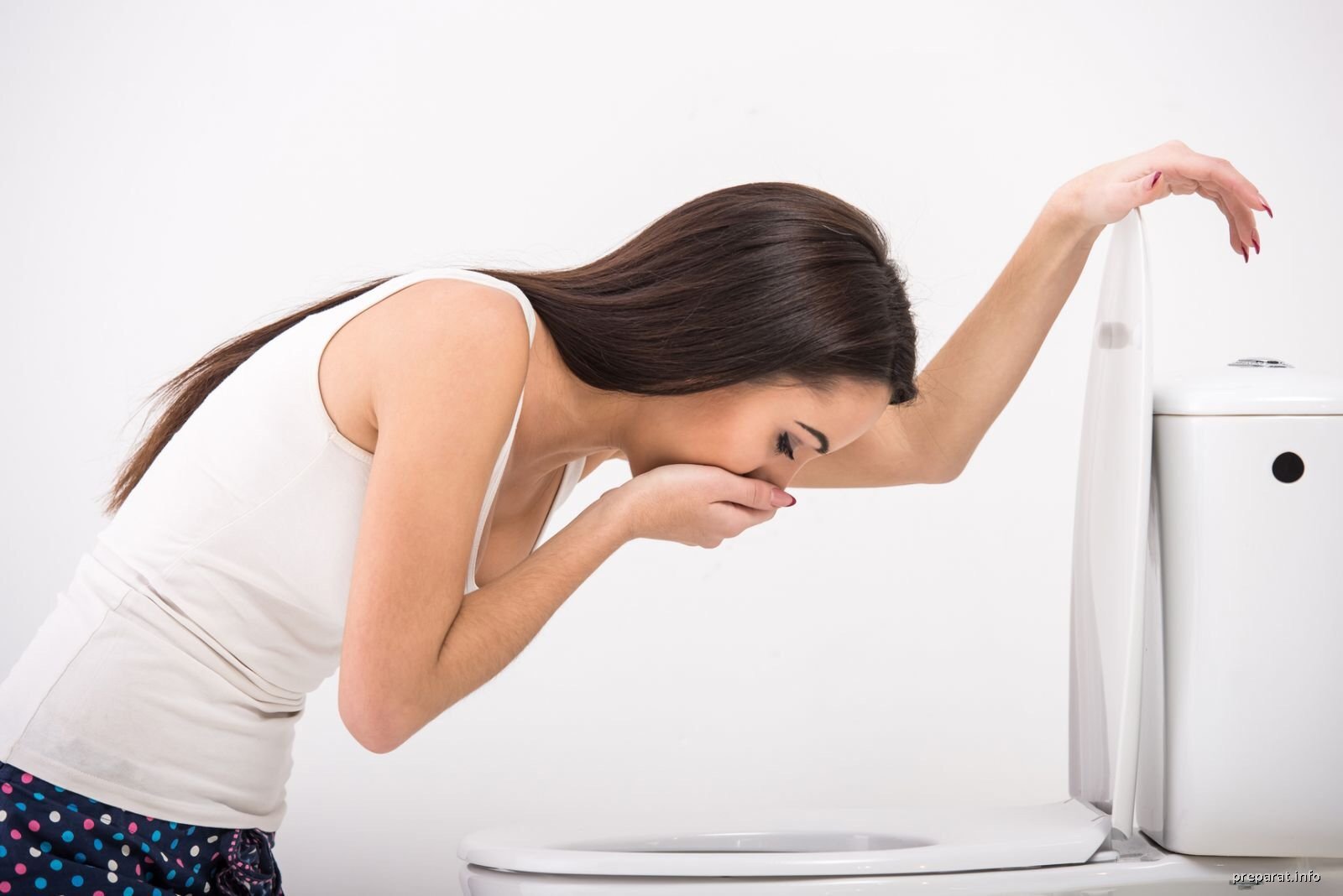 The symptoms of intestinal infection in adults with fever are the same, only the process proceeds in a more severe form. This is due to the fact that elevated temperature indicates inflammatory processesaccompanying the course of the disease. Another unpleasant consequence that occurs with intestinal infections is partial or complete dehydration. This most often occurs with vomiting or frequent, loose stools. Dehydration leads to kidney failure, other complications, and even shock. It all depends on age and health. Adult healthy men and women are less susceptible to dehydration than the younger generation or people in old age. Acute intestinal infection in adults treatedThe above symptoms of intestinal infection in each case manifest themselves differently. At someone everything goes in a mild form, accompanied only by nausea. In others, in more severe cases, there is a combination of several symptoms that indicate the presence of an acute intestinal infection. Treatment in adults, as in children, must begin immediately, without shelving. At the first stage, an accurate diagnosis is required, since the same symptoms are found in a number of other diseases:
Performing all the doctor's prescriptions, taking medicines, maintaining the water regime and diet food will help you quickly get back into service with minimal losses. In the people such infection received the name of intestinal flu. The main cause of the disease is called rotaviruses, which enter the stomach from the outside. In this case, the bacteria must pass through the stomach, reach the small intestine. Further, they are embedded in the walls of the mucous membrane, which affects the increased motor activity of this organ. The incubation period in adults lasts about five days, depending on the condition. But the first causes begin to appear much earlier than bacteria cause mucous irritation. sometimes pass easily. In case of treatment with high-quality medicines, after a few days, you can begin a normal rhythm of life. In severe cases, the case ends with a hospital ward and a very long recovery period. Intestinal infection is well treated at home, does not require complex medical procedures, the main thing is an integrated approach, including the elimination of the action of microbes, the neutralization of existing toxins. In terms of efficiency, advanced positions are held by 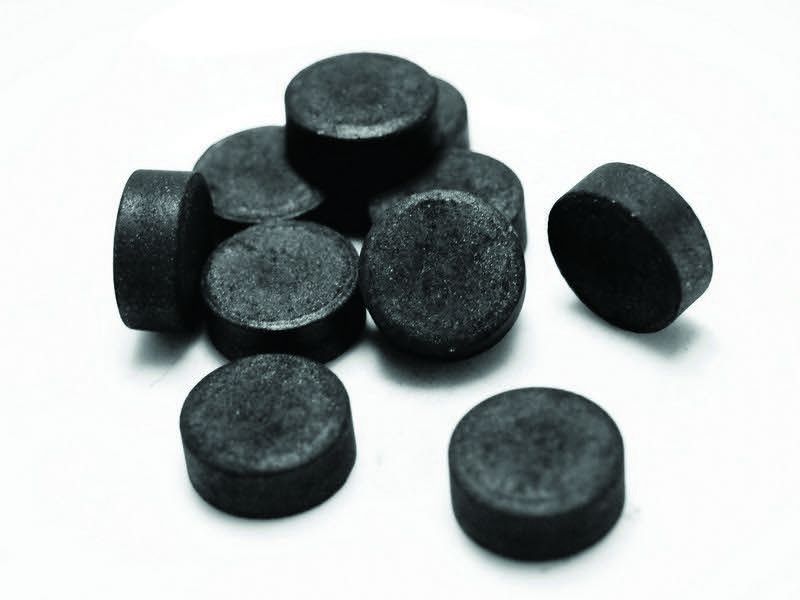 The fight against toxins goes in different ways, because the body also seeks to get rid of them as soon as possible, hence vomiting and diarrhea. Experts advise to do a gastric lavage (in the absence of vomiting), intestinal lavage, with the help of an ordinary enema, which is available in everyone’s home. Water-salt balance is easily restored when using a solution of rehydron, you need to drink often, but little by little. The restoration of microflora is a matter of modern, widely publicized - "Linex", "Lactobacterin". By the way, according to doctors, lactobacilli have a positive effect on the internal organs.
At the moment, as doctors recognize, for the treatment of rotavirus infection effective means does not exist yet. Therefore, many patients are in no hurry to go to doctors, looking for ways to treat folk remedies in adults. You can use natural absorbents, restore the water balance with the help of herbal teas, regular compote of dried fruits, diet. Patients with a temperature should not rely on their own strength and medicinal plants. In this case, care must be provided in full and in a medical institution. The same applies to cases when severe vomiting begins, impurities of blood in the feces. Antibiotics for intestinal infections in adults list of the bestDoctors in one voice say that antibiotics for infections in adults should be prescribed only by specialists. No talk about self treatment can not be, in many countries they are sold only by prescription. On the question, what antibiotics of intestinal infection in adults act effectively, also cannot be answered. Each flows in different ways, the list of antibiotics is quite long - Rifaximin, Bankomitsin, Neomycin, Ramoplanin, Cefix, they all wide spectrum actions.
Rotavirus intestinal infection diet in adultsOften scoring the phrase “antibiotics for intestinal infections in adults’s list” in a search engine, the patient forgets that only an integrated approach is needed. In addition to antibiotics, rehydration should be carried out (restoring water balance). Well helps "Smekta", protecting the digestive system, removing toxins. Antiviral and enzyme preparations may be used.
In addition, in the full treatment of rotavirus infection, the diet in adults is included as one of the essential steps. Medical specialists call the list of products that should be excluded from the diet at the time of treatment:
The diet should be strictest, recommended porridge, boiled in water, with a minimum salt content, without oil. The best option - rice porridge on the water. Since rice during cooking produces mucus, which envelops the walls of the digestive tract, preventing the introduction of bacteria and their reproduction. Did you understand what an intestinal infection in adults, treatment and signs do not cause doubts? Do you understand how to treat intestinal infection in adults at home? Leave your opinion or feedback for everyone on the forum. |
| Read: |
|---|
New
- Sequence of procedures
- The program of intensive moisturizing of the skin on cosmetics bark
- What you need for acrylic powder
- What does owl mascot mean
- Analyzes for pancreatitis: what research should be done and what indicators show
- Owl - a talisman to attract money and good luck
- What bird screams at night with a kitten's voice?
- Cholesterol and stress
- Manicure at home
- Effective facial



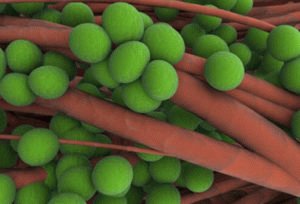

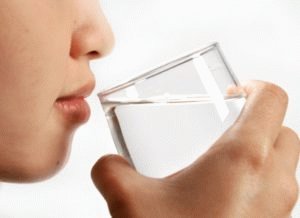
 Intestinal infections include a large number of
Intestinal infections include a large number of 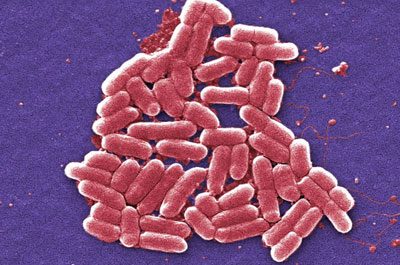 Dysentery, or a disease of dirty hands, is an infectious disease that is spread all over the planet. Most often it develops in the hot season. Caused by Shigella bacteria. You can become infected by a sick person, as well as by drinking contaminated water, unwashed vegetables or fruits.
Dysentery, or a disease of dirty hands, is an infectious disease that is spread all over the planet. Most often it develops in the hot season. Caused by Shigella bacteria. You can become infected by a sick person, as well as by drinking contaminated water, unwashed vegetables or fruits.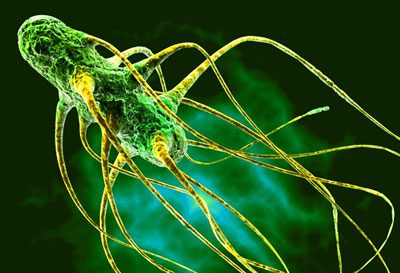 This intestinal infection is very insidious. Often pathogens of salmonellosis multiply in food, without changing their taste. You can become infected with salmonellosis by eating eggs, dairy and meat products, and sausages. At the same time, the food consumed can be fresh and of high quality, without having any
This intestinal infection is very insidious. Often pathogens of salmonellosis multiply in food, without changing their taste. You can become infected with salmonellosis by eating eggs, dairy and meat products, and sausages. At the same time, the food consumed can be fresh and of high quality, without having any 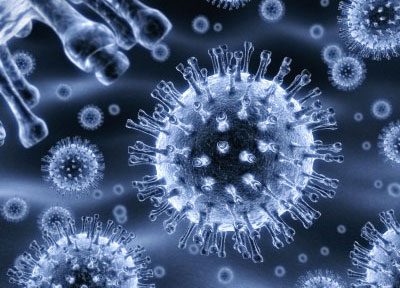 This viral intestinal disease is popularly called “intestinal flu”, as it manifests itself not only by the symptoms of the digestive system, but also by catarrhal symptoms characteristic of ARVI.
This viral intestinal disease is popularly called “intestinal flu”, as it manifests itself not only by the symptoms of the digestive system, but also by catarrhal symptoms characteristic of ARVI.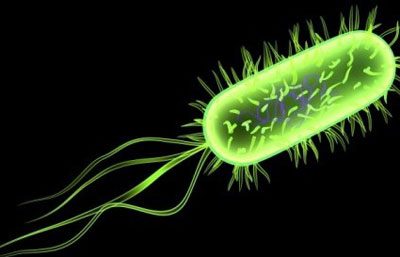 Outbreaks of enterovirus are very common. This pathogen is capable of being transmitted from person to person.
Outbreaks of enterovirus are very common. This pathogen is capable of being transmitted from person to person.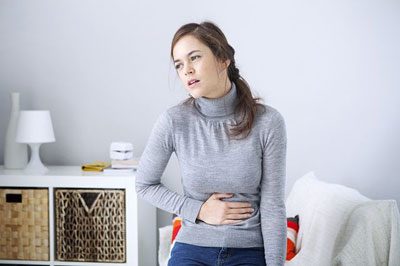
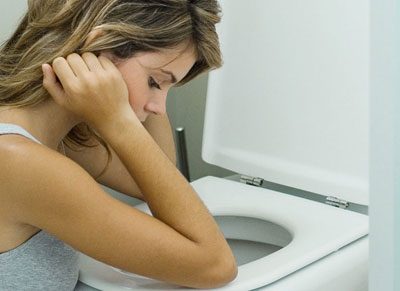 Why rinse it, you ask, if intestinal poisoning occurs after a certain incubation period, dangerous food has long left the gastric cavity? In fact, this procedure will help to remove some of the toxins and the waste products of microorganisms, which will greatly facilitate the well-being of the patient. It should also be borne in mind that similar symptoms can occur at first and acute poisoning, in which the cleansing of the stomach is the main emergency rescue procedure.
Why rinse it, you ask, if intestinal poisoning occurs after a certain incubation period, dangerous food has long left the gastric cavity? In fact, this procedure will help to remove some of the toxins and the waste products of microorganisms, which will greatly facilitate the well-being of the patient. It should also be borne in mind that similar symptoms can occur at first and acute poisoning, in which the cleansing of the stomach is the main emergency rescue procedure.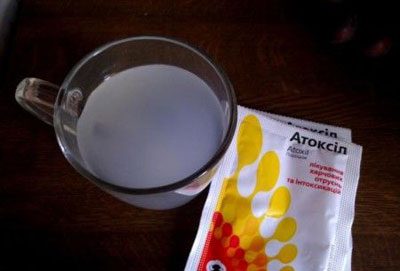 Any sorbents, for example, sorbeks, atoksil, smekta or activated carbon for intestinal infections can be taken at the stage of first aid. These drugs help to neutralize and remove toxins from the intestines and reduce the level of intoxication syndrome.
Any sorbents, for example, sorbeks, atoksil, smekta or activated carbon for intestinal infections can be taken at the stage of first aid. These drugs help to neutralize and remove toxins from the intestines and reduce the level of intoxication syndrome.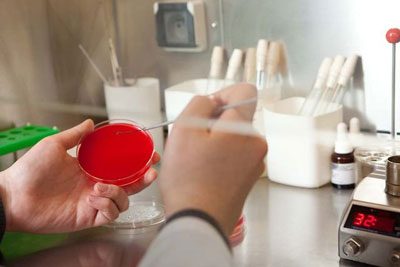 If an intestinal infection is suspected, patients are hospitalized in the infectious disease ward. The doctor examines the patient, collects anamnesis, asks him about the products he has used over the past few days, the places of public catering where he ate. In order to find the right etiological cure for an intestinal infection, you need to make an accurate diagnosis, identify the causative agent, as well as assess the condition of the internal organs and the whole organism.
If an intestinal infection is suspected, patients are hospitalized in the infectious disease ward. The doctor examines the patient, collects anamnesis, asks him about the products he has used over the past few days, the places of public catering where he ate. In order to find the right etiological cure for an intestinal infection, you need to make an accurate diagnosis, identify the causative agent, as well as assess the condition of the internal organs and the whole organism.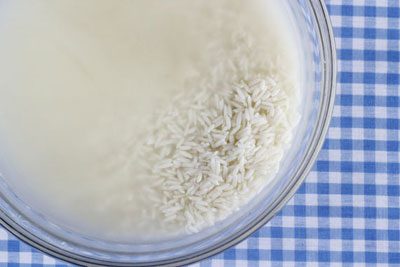 So what to do? We need to agree to the hospitalization proposed by the ambulance. The doctor in the hospital will select the necessary drugs for the treatment of infection, will adjust the water-electrolyte balance. To quickly cure this disease, you must strictly follow all of its recommendations and adhere to appointments.
So what to do? We need to agree to the hospitalization proposed by the ambulance. The doctor in the hospital will select the necessary drugs for the treatment of infection, will adjust the water-electrolyte balance. To quickly cure this disease, you must strictly follow all of its recommendations and adhere to appointments. How to protect yourself and loved ones from this terrible infectious disease? Unfortunately, there are no vaccines or vaccines against intestinal infections., or 100% of the existing prevention methods. From the development of this disease, no one is immune. But thanks to simple recommendations, you can reduce the risk of its development to a minimum.
How to protect yourself and loved ones from this terrible infectious disease? Unfortunately, there are no vaccines or vaccines against intestinal infections., or 100% of the existing prevention methods. From the development of this disease, no one is immune. But thanks to simple recommendations, you can reduce the risk of its development to a minimum.
